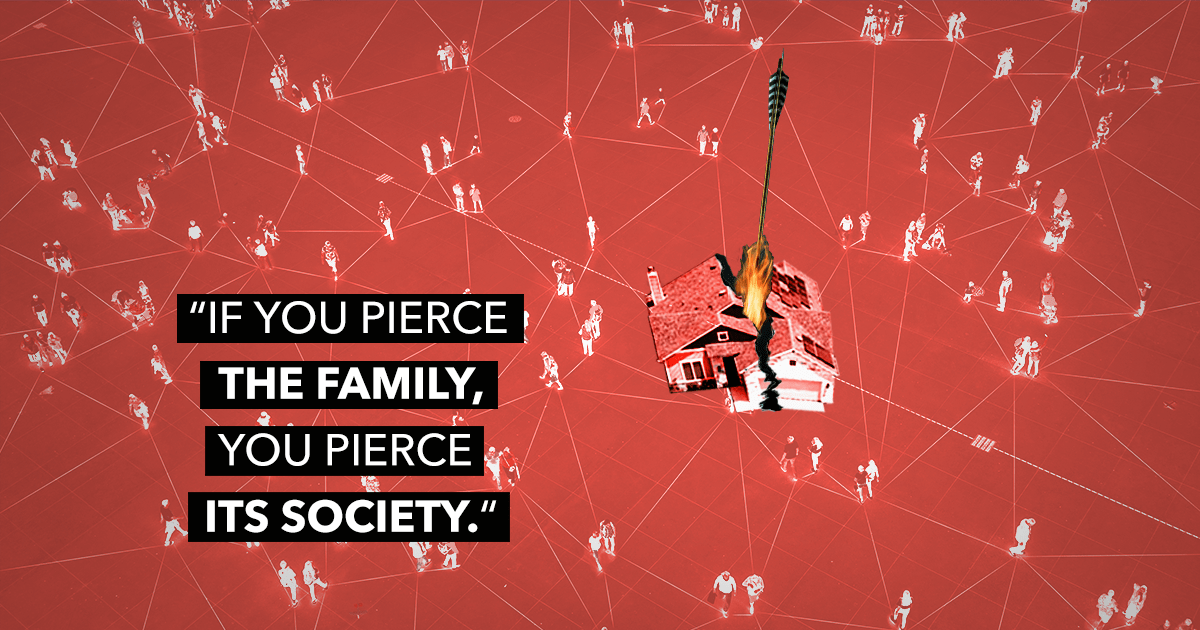In this final post of the Love 101 series, you'll find helpful advice on how to love others well. It starts with first being filled with God's love and strength, so you're equipped to do what you cannot do in your own human efforts. God's love empowers us with the emotional capacity to treat other people with greater kindness, compassion, patience, and grace.
One of the best things about life is that we were made to love and be loved.
At times, loving others is easy, especially when you're with people whom you genuinely like—or those with whom you have common interests. But loving others can be difficult, too. As much as we love our family, friends, significant other, and people around us, we can get frustrated, impatient, hurt, or offended.
We are called by God to love others, so how do we love them well?
First, let's look at the different kinds of love.
Different kinds of love
The English language has one word for love. We love pizza. We love our pets. We love a beautiful sunset. And we love people. However, in the Greek language, there are different words for the various kinds of love in our lives:
• Eros is romantic or passionate love.
• Phileo is friendship or brotherly love.
• Storge is the strong bond of love and affection for family—protective love.
• Agape is unconditional, sacrificial love (as in God's love for us); it is selfless love.
Loving others
Jesus said the two greatest commandments are to love God and love others.
"Love the Lord your God with all your heart and with all your soul and with all your mind and with all your strength. The second is this: 'Love your neighbor as yourself.' There is no commandment greater than these." (Mark 12:30-31)
While He was on earth, Christ demonstrated love to his disciples and all of those around Him. He healed the blind and spoke with truth and compassion.
Jesus was kind to everyone—even people who were looked down upon in that society. He showed ultimate love through His sacrificial death and resurrection for you, me, and for all mankind to be forgiven and set free.
Jesus told us, in turn, to love others: "Just as I have loved you, you also are to love one another." (John 13:34)
But, it's not always easy to love others. We get tired and irritable. Other people frustrate us—especially when they drive crazily in traffic or have annoying habits we don't like.
How do we love others well, even when it can be difficult?
How to love others well
Loving others starts with loving the way Jesus does. Thankfully, He equips us to do things we cannot do in our own strength. And He empowers us through the power of the Holy Spirit.
We love the way Jesus loves when we listen, speak the truth in love, and take time to build relationships. When we allow God's love to heal the broken parts of our own hearts and wounded emotions, we can love more freely, too.
More than an emotion, love a call to action—to show others and tell them that you truly care for and accept them. Here are some key ways to show love to others:
Be understanding. We're all trying to do the best we can. In conversation, seek to understand the other person's point of view and share yours.
Be kind. Acts of kindness, even small ones—like a smile or a kind word—can go a long way. An unexpected phone call or text (even a snail mail letter) can brighten someone's day.
Ask questions. Be more others-centered than self-centered. Ask how the other person is doing. Listen to what he or she is saying. Listening is a great way to communicate love and care for someone.
Show interest. When you look another person in the eyes when you're talking with him or her you demonstrate that you care. Be present. Don't look down at your cell phone all the time.
Say it. Express how much you care with words. Sometimes someone you love needs to hear, "I like you." or "I love you." or "I really enjoy spending time with you."
Spend time together. Being together communicates love, too. Ask your roommate to watch a movie with you. Visit your parents. Or, ask the person you're dating (or a friend), "What would you like to do together this week?"
Pray. Ask God to help you to love like Jesus loves—with kindness, mercy, and compassion. We cannot change anyone, but we can change our attitude and actions on how we will respond and relate to others.
In the end, loving others is not as challenging when you're replenished with the love of God. In a romantic relationship, or any relationship, you can be yourself, accept people as they are, and not try to control things. You're not as frantic, fearful or frustrated. Instead, a sense of peace settles in. You can stop striving.
When we experience God love, and truly connect with others, we are never the same.
Neither is the world around us.
One of the best things about life is that we were made to love and be loved.
At times, loving others is easy, especially when you're with people whom you genuinely like—or those with whom you have common interests. But loving others can be difficult, too. As much as we love our family, friends, significant other, and people around us, we can get frustrated, impatient, hurt, or offended.
We are called by God to love others, so how do we love them well?
First, let's look at the different kinds of love.
Different kinds of love
The English language has one word for love. We love pizza. We love our pets. We love a beautiful sunset. And we love people. However, in the Greek language, there are different words for the various kinds of love in our lives:
• Eros is romantic or passionate love.
• Phileo is friendship or brotherly love.
• Storge is the strong bond of love and affection for family—protective love.
• Agape is unconditional, sacrificial love (as in God's love for us); it is selfless love.
Loving others
Jesus said the two greatest commandments are to love God and love others.
"Love the Lord your God with all your heart and with all your soul and with all your mind and with all your strength. The second is this: 'Love your neighbor as yourself.' There is no commandment greater than these." (Mark 12:30-31)
While He was on earth, Christ demonstrated love to his disciples and all of those around Him. He healed the blind and spoke with truth and compassion.
Jesus was kind to everyone—even people who were looked down upon in that society. He showed ultimate love through His sacrificial death and resurrection for you, me, and for all mankind to be forgiven and set free.
Jesus told us, in turn, to love others: "Just as I have loved you, you also are to love one another." (John 13:34)
But, it's not always easy to love others. We get tired and irritable. Other people frustrate us—especially when they drive crazily in traffic or have annoying habits we don't like.
How do we love others well, even when it can be difficult?
How to love others well
Loving others starts with loving the way Jesus does. Thankfully, He equips us to do things we cannot do in our own strength. And He empowers us through the power of the Holy Spirit.
We love the way Jesus loves when we listen, speak the truth in love, and take time to build relationships. When we allow God's love to heal the broken parts of our own hearts and wounded emotions, we can love more freely, too.
More than an emotion, love a call to action—to show others and tell them that you truly care for and accept them. Here are some key ways to show love to others:
Be understanding. We're all trying to do the best we can. In conversation, seek to understand the other person's point of view and share yours.
Be kind. Acts of kindness, even small ones—like a smile or a kind word—can go a long way. An unexpected phone call or text (even a snail mail letter) can brighten someone's day.
Ask questions. Be more others-centered than self-centered. Ask how the other person is doing. Listen to what he or she is saying. Listening is a great way to communicate love and care for someone.
Show interest. When you look another person in the eyes when you're talking with him or her you demonstrate that you care. Be present. Don't look down at your cell phone all the time.
Say it. Express how much you care with words. Sometimes someone you love needs to hear, "I like you." or "I love you." or "I really enjoy spending time with you."
Spend time together. Being together communicates love, too. Ask your roommate to watch a movie with you. Visit your parents. Or, ask the person you're dating (or a friend), "What would you like to do together this week?"
Pray. Ask God to help you to love like Jesus loves—with kindness, mercy, and compassion. We cannot change anyone, but we can change our attitude and actions on how we will respond and relate to others.
In the end, loving others is not as challenging when you're replenished with the love of God. In a romantic relationship, or any relationship, you can be yourself, accept people as they are, and not try to control things. You're not as frantic, fearful or frustrated. Instead, a sense of peace settles in. You can stop striving.
When we experience God love, and truly connect with others, we are never the same.
Neither is the world around us.
Jackie M. Johnson is an author and blogger who writes inspiring content on growing a better life, the power of prayer, and encouragement for singles. Jackie has a heart to encourage single adults of all ages, and she has led numerous small groups and Bible studies for singles. Her books include the breakup recovery guide, When Love Ends and the Ice Cream Carton Is Empty, Power Prayers for Women, and Praying with Power When Life Gets Tough. Connect with Jackie at JackieJohnsonCreative.com.












